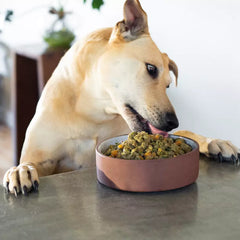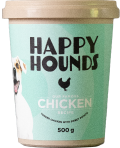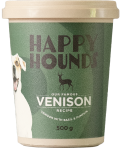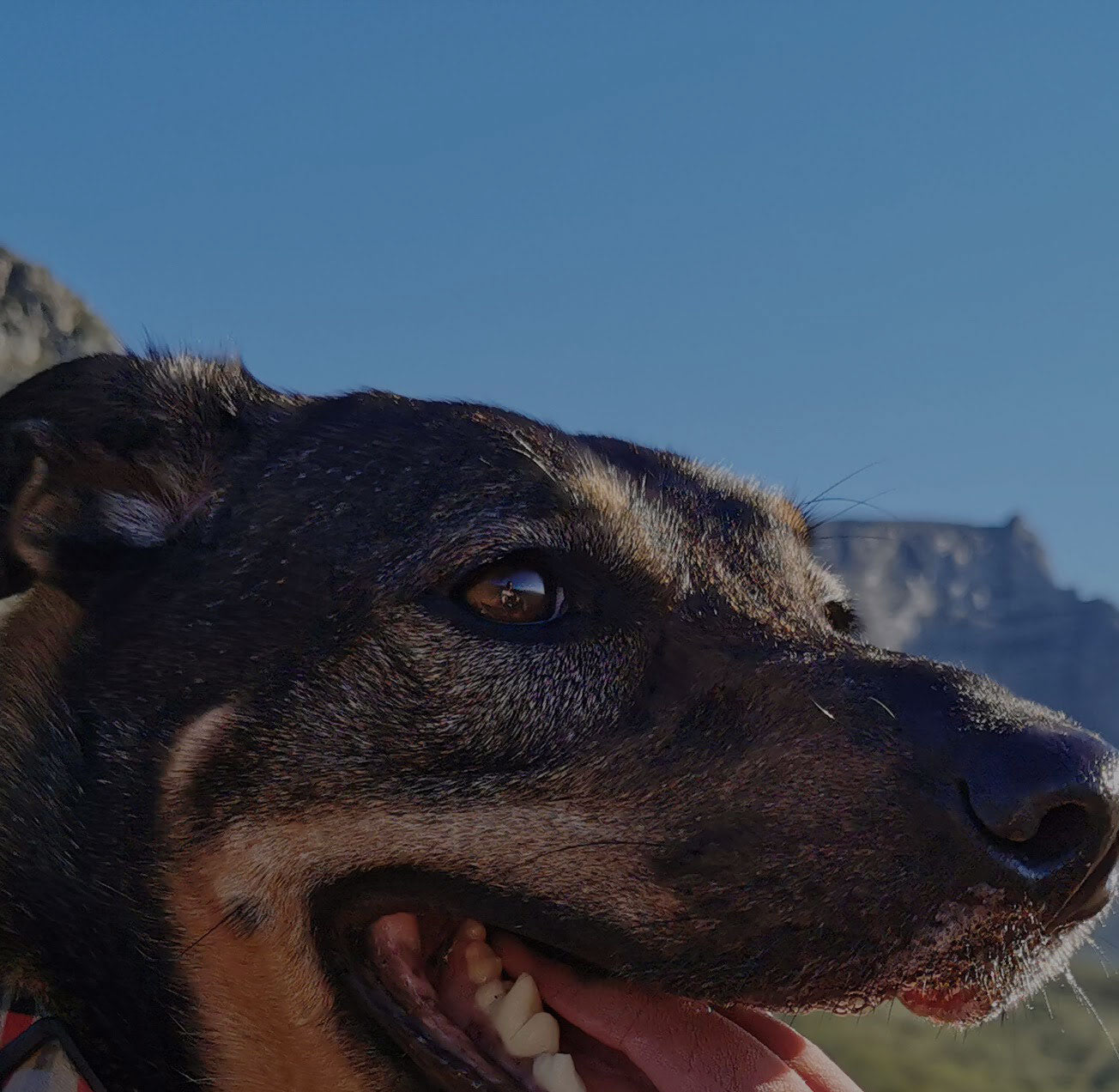Shop

How to House-Train a Puppy: A Comprehensive Guide for New Dog Owners
August 21, 2024 6 min read
Like human infants, puppies are constantly taking in everything around them and learning all the time. It’s best that they learn good behaviour early on, and training is an around- the- clock endeavour. Every experience and interaction is a learning opportunity, so owners need to be mindful of each new and repeated encounter.
Puppies will naturally chew and explore, these instincts are necessary for their development but can also lead to hiccups in house training. It’s important to remember that puppies have short attention spans and limited impulse control.
You’ll need to be patient with your puppy through the training process. They learn best through consistent, positive interactions. They’ll make the most progress with a solid routine and clear understanding of what’s expected.
Understanding their capabilities will guide the training process and allow you to have realistic expectations. You can use your puppy’s curiosity as a tool to socialise them. By exposing pups to new people, other animals and different environments, you’ll help them be more comfortable and confident as adults.

House training your puppy - in a nutshell:
-
Designate a space for your puppy to pee and poop
-
Take them to this designated space every 2 -3 hours
-
Offer them a vocal cue to do their business. Be patient.
-
Mark their action (with a clicker or a “yes!”) and reward with a treat and praise
Let’s dive a little deeper into how this training process works in shaping your puppy’s behaviour…
Positive Reinforcement
Positive reinforcement is crucial for effectively training dogs. We are advocates of force-free, positive reinforcement only training. It relies on rewarding your puppy with treats, praise or affection when they perform the required behaviour. This encourages your dog to repeat the action and will reinforce good habits.
It’s important to reward your puppy as soon as they perform the desired behaviour in order for them to associate the action with the reward. For some extra motivation while learning something new or challenging, you can reward your dog with higher value treats (like our Beef and Venison Training Treats) until they have the behaviour down.
Training Tools
- Leash, Collar / Harness
- Toys
- Treats
- Cleaning supplies
- Clicker
- Crate
By incorporating the right tools into your routine, your house training will be more effective and convenient. Getting your puppy comfortable with various items like a leash, collar or harness and toys will encourage good behaviour and help them develop into well adapted adults. Using a leash to take your puppy out to poop isn’t necessary but is a convenient way to introduce your dog to expected walking behaviour at the same time. Toys will keep your puppy engaged and give them something to nibble on, a cure for boredom and furniture casualties, but they can also serve as a reward to reinforce behaviours.

For house training, we recommend having essential cleaning supplies on hand so accidents can be dealt with easily. This will help you keep your home clean and hygienic while minimising stress. Little messes are part of owning a puppy and we don’t want them to be a source of frustration for you and your pup.
A clicker is used to mark good behaviour in training but is not essential, you can also use a specific word that your puppy will learn to recognise, like “yes”.
Another very useful training tool is a crate. It provides your puppy with their own personal den, a space where they feel safe. Puppies won’t generally do their business where they sleep, so spending time in a crate will help to strengthen their routine and teach them to ‘hold it’ until they’re outside. It also serves as a way to keep them out of trouble when not under constant supervision.
When investing in a crate, make sure it’s large enough for your puppy to move around in- they should be able to stand, turn around and lie down comfortably.
Crate Training
The crate needs to be a safe, positive place for your puppy. You can place toys and treats inside to encourage your puppy to explore, but let them do so at their own pace. Try to place the crate in a quiet area of your house to enhance a feeling of safety. Also avoid using the crate as a form of punishment, this will only create fear and resistance in your pup.
Once your puppy goes into the crate on their own accord, you can reward them with praise and treats. Work on gradually increasing the time that your puppy spends in the crate and making sure they always feel safe and comfortable.
Making potty-time routine
By establishing an activity routine from early on, you help your puppy know what to expect and how to behave throughout the day. This provides a sense of safety for them, as change and unexpected circumstances can cause anxiety. Create a structured schedule for feeding times, bathroom breaks and play time. Consistent meal times can help regulate their digestive system and their small bladders will need to be emptied every 2 -3 hours.
Choose a specific area for your puppy to go potty, it should be easily accessible for them and free of distractions. Take your puppy to this spot every 2-3 hours and give them a verbal cue to do their business. Be patient with them because they won’t understand at first. Once they pee or poop, reinforce their behaviour by rewarding them with treats or praise. The consistent area, timing and verbal cue will help your puppy learn the routine.

Dealing with accidents
Handling mishaps is a normal part of puppy training. When accidents occur, immediately clean the area to get rid of odours they may encourage repeated oopsies. There are enzyme cleaners specifically for pet stains and odours that are a great help. Avoid using products that contain ammonia because those will promote more accidents.

It’s best to redirect any unwanted behaviour instead of punishing your dog. Disciplinary measures can cause fear and confusion and aren’t constructive in training. Puppies don’t understand punishment and it doesn’t solve the root cause of a behaviour. You can use a vocal cue like ‘no’ to distract your puppy from the behaviour and then you redirect them to an appropriate one. For example, if your puppy is peeing on the carpet, say no, pick them up and take them to their designated potty area, and lastly reward them once they finish their business in the right place.
Consistency among family members
It’s essential to maintain consistent rules and commands for your puppy to avoid confusion. Every member of your household should be on the same page and consistent with rules so that your puppy has clear expectations. They’ll learn quicker and behave better within a consistent environment. Everyone should know the puppy’s routine, their designated potty area, and now how to redirect accidents so that training remains consistent and effective.
Staying motivated and patient
Training a puppy is no small task and requires a lot of patience. By staying consistent, celebrating small wins, and forming good habits one step at a time, your efforts will pay off. Your puppy will never be perfect from the get-go but consistency will create the best long-term results.

When to seek professional help
Despite your dedication there may be a time where you need some extra support. If your puppy has persistent behavioural issues, like aggression, severe anxiety, or excessive fear, we recommend consulting a professional. Even if you struggle to manage effective training sessions by yourself, professional help can offer you valuable guidance and reassurance. When looking for dog trainers or behaviourists, take note of their certifications, experience and client reviews.
Dog Trainers or Behaviourist in South Africa can be accredited by South African Veterinary Council (SAVC) or hold memberships of the International Companion Animal Network (ICAN) and/or COAPE Association of Behaviourists and Trainers International (CABTi), who promote a force-free and holistic approach to animal behaviour. Accredited qualifications in South Africa that you can look out for include Dog Wise, Think Behaviour or COAPE Diploma in Animal Behaviour (DipCABT) C.C.A.B.
Training your puppy is a rewarding journey that requires understanding, patience, and consistency. By setting up a structured routine that works for you and positively reinforcing good behaviour you can raise a happy, well-behaved dog. Stay consistent and have fun!










